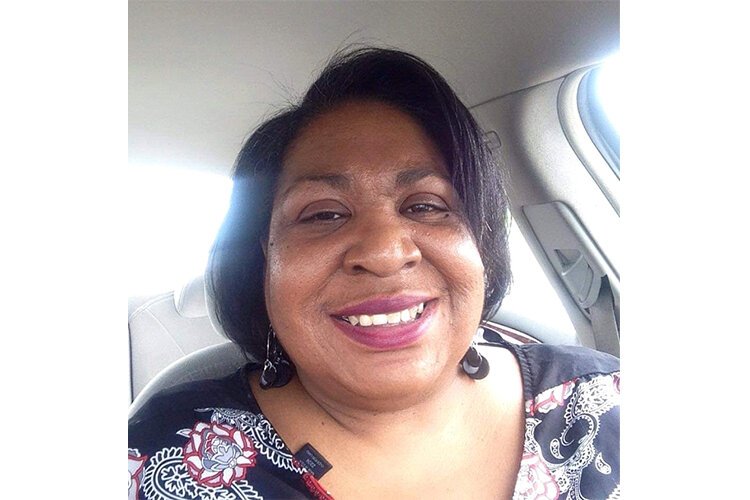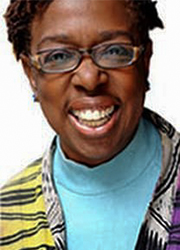Historical mistreatment, modern skepticism lead Black Americans to mistrust COVID-19 care
 Carmen Bailey, 52, is recovering from COVID-19.
Carmen Bailey, 52, is recovering from COVID-19.
Two days before Carmen Bailey fell ill with COVID-19 in late April, she told her daughter not to take her to the hospital if she ever got the disease.
As her symptoms progressed over a week—first a mild headache, then congestion—the 52-year-old was too tired to work. And it got harder to care for the three children, ages four, five, and eight, who live with her.
Still, Bailey refused to seek treatment.
“Oh no, I’m not doing that. Ain’t nobody putting me on no ventilator,” recalls Bailey of the conversation she had with her daughter after watching a news report about the virus.
As Bailey, a graphic designer who specializes in funeral service brochures, got sicker, her daughter had to tap on her back to help her cough up mucus from her lungs. A nurse from her doctor’s office urged her to go to an emergency room.
But Bailey was adamant: She didn’t trust the medical system to treat her fairly.
She kept thinking about her aunt, who was hospitalized for complications from COVID-19 and put on a ventilator.
“She died," says Bailey. "Everybody that I know that ended up going [to the hospital] and being put on a ventilator ended up dying,”
The relationship Black Americans have with the country's healthcare system is a complicated one. It’s a system that fought to keep Black doctors from being trained and out of professional associations. It’s a system that perpetuated myths of racial inferiority by blaming people—instead of economic and environmental racism—for their shorter, sicker lives. It’s a system that used Black bodies for experimentation, often without consent or the benefit of the medical breakthroughs that came from the research.
Mistrust bred by those injustices and modern-day health disparities such as higher levels of heart and lung disease among the Black population—conditions that make death from COVID-19 far more likely—have made everyday health decisions fraught with fear, especially during this pandemic: Whether to get tested. Whether to go to the hospital. Whether to try a new vaccine.
In Cleveland, Black residents have borne the brunt of the virus by every measure. Though they make up about half of the city’s population, as of October 15, 72% of Clevelanders hospitalized due to the virus were Black. Sixty-one percent of the deaths from the disease in Cleveland have been among Black residents, who are more likely to have underlying medical conditions the U.S Centers for Disease Control and Prevention says make them high risk—like diabetes, hypertension, heart disease, kidney disease, and asthma.
Despite her arduous experience with the virus, Bailey is also adamant about this: She’ll never take a COVID-19 vaccine.
“I’m not gonna be a guinea pig,” she says. “Now, you don’t know if they’re trying to put COVID in people.”
Bailey isn’t alone in her mistrust. In September, a Pew Research Center poll found the country is almost split when it comes to taking the vaccine. But African Americans like Bailey are especially skeptical; more than two-thirds polled said they’d refuse a vaccine, compared with roughly half each of whites and Hispanics.
Both figures are a significant hike and show growing distrust since May, when an earlier survey was done. Then, about one-quarter of all adults said they’d refuse to get a vaccine, including almost half of African Americans.
Tuskegee and its legacy
Attitudes like Bailey’s can often be traced back to the Tuskegee Syphilis Study. It started in Macon, Alabama, in 1932, when there was no cure for the condition, and involved hundreds of Black men.
In 1947, penicillin became the standard treatment, but it wasn’t given to the study’s participants. In fact, those running the experiment actively worked to make sure people weren’t treated by local doctors. Participants also were never informed about the true nature of the study, told instead by researchers that it was a study of “bad blood.”
The research ended in 1972—40 years after it began—when newspaper articles revealed the unethical practices.
Now almost a half-century after the experiment ended, it still colors views about medicine and new treatments, says Dr. Stephaun Wallace of the Seattle-based Fred Hutchinson Cancer Research Center, which is helping coordinate outreach for COVID-19 vaccine trials.
“Black and Latinx communities follow a very strong oral tradition where, you know, people pass along information, Wallace explains. “The retelling of these stories and sharing of this information sort of connects people intergenerationally.”
Dr. Charles Modlin, executive director of Minority Health for the Cleveland Clinic, calls the lack of minority participation in research “one of the contributing causes of the health care disparities.”
Doctors across the country, including Modlin and others in Cleveland, have made efforts to build trust with minority health fairs that offer screening and education. They invite members of minority and undervalued communities into the clinical trial process, which has helped increase participation in HIV vaccine and treatment testing over time.
A positive test
Eventually, a blood test for antibodies confirmed what Bailey and her doctor, who she reluctantly visited, suspected: she’d had COVID-19.
She still feels the effects of the disease, six months later. Her breathing is labored. And the virus has affected her heart. Bailey said her legs and knees have swollen because her heart isn’t pumping blood correctly.
“My doctor said, ‘Unfortunately, you’re one of those who, when COVID hit, it caused all kinds of problems,’” Bailey says.
Still, her medical troubles haven’t persuaded her to consider a vaccine when one becomes available. Bailey has decided to tough things out.
“If I made it through COVID, I can make it through whatever else [comes along],” she says.
This series is a partnership between the Northeast Ohio Solutions Journalism Collaborative, which FreshWater is a part of, and The Cleveland Observer. It is presented as part of ideastream's Coping With COVID-19 project, which is funded by the Third Federal Foundation and University Settlement.

